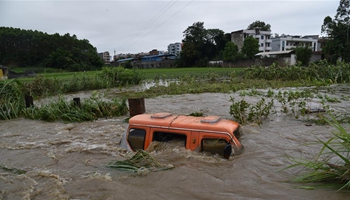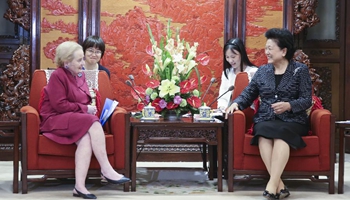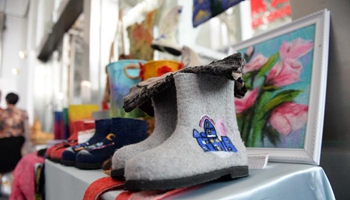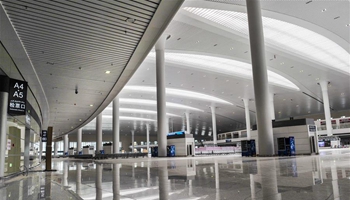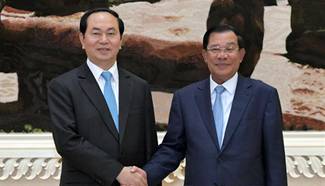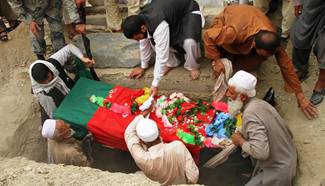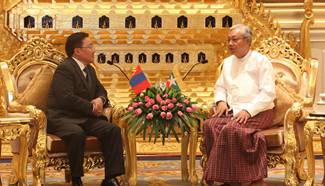Social groups have become an important channel through which the masses of people take part in social management and public service. Their structures have been continuously optimized and their quality has been steadily improved. By the end of 2015, the number of social groups registered nationwide according to law had reached about 660,000, an increase of 32.3 percent over the corresponding period of 2012. Social groups of various types nationwide had generated incomes of around 260 billion yuan, providing about 8.5 million people of various kinds with employment, and accepted donations of approximately 90 billion yuan. Direct registration for professional associations of such types as commerce, science and technology, charity, urban and rural community service has been explored and practiced. The delinking between chambers of commerce and administrative organs has been activated. The strengths and role that social groups in the philanthropic field have in poverty and disaster relief and dealing with various emergencies have been fully utilized. Privately-run schools, hospitals and homes for the aged and other social service facilities, that are not for profit, have been actively nurtured and developed, to meet the increasing demands of the people for diversified public services. Government has been encouraged to transfer its functions to and purchase services from social groups. Consultation between social groups, especially grassroots social groups in urban and rural areas, has been explored.
(7) Right to be heard
The construction of consultative democracy has been pushed forward. In 2013, the CPPCC initiated Bi-weekly Consultative Forums, which were held about 20 times a year, focusing on specific topics, taking advantage of the inclusiveness of the National Committee, relying on special committees and taking the form of discussion meetings. The CPPCC held consultations on specific issues, consultations with representatives of specific sectors of society, consultations with Party and government departments and consultations on the handling of proposals.
The internet information platform has enriched channels through which citizens can have their voices heard. By the end of 2015, China's online population had reached 688 million and the internet penetration rate had reached 50.3 percent. Netizens make remarks and comments through online news commentaries, forums, blogs, micro-blogs, WeChat accounts and other internet platforms, putting forward criticisms and suggestions on the work of the government at various levels and exercise supervision over the conducts of civil servants.
The channels for people to make complaints in the form of letters and visits have been continuously broadened. Letters and visits and other traditional channels for citizens to express opinions have been optimized. Efforts have been made to make sure that complaints can reach officials through their letter boxes and short messages or through video links. A system has been put in place to collect suggestions from the public. The operational mechanism of the nationwide complaint system has been improved, with the process of complaints being received and handled open to the public and subject to citizens' comments and social supervision. Interconnection and inter-working have been realized in all provinces of China and 30 ministries and ministerial-level commissions, and online complaint making has gradually become the main channel for citizens to make demands.
The rights of workers in enterprises and public institutions to be heard are guaranteed. Relevant departments jointly produced the Regulations on Democratic Management of Enterprises, under which the formulation and revision of labor rules and regulations of enterprises, major decisions about the operation and management of enterprises, and important matters concerning the immediate interests of workers must be submitted to workers' congresses for deliberation. During the adjournment of workers' congresses, workers' demands are promptly conveyed through joint meetings of leaders of workers' delegations, workers' democratic management committees, talks between labor and capital and other channels.
The State Administration of Press, Publication, Radio, Film and Television has implemented the Measures for the Administration of Press Cards and the Measures for the Administration of Correspondent Bureaus of Newspapers and Periodicals, to protect the legitimate rights of news media and their branches and reporters to interview and supervise by public opinion.
(8) Right to oversee
The NPC and its Standing Committee have continuously strengthened supervision. In 2015, the Legislation Law was revised, the system of filing and examining laws, regulations and regulatory documents was strengthened, and clear guidelines were set out on voluntary examination feedback to applicants for examinations and openness to society. From 2012 to 2015, the NPC Standing Committee held 12 special consultations, carried out 15 special investigations and surveys, and conducted inspections on the enforcement of 17 laws. In 2014, the General Office of the NPC Standing Committee formulated A Number of Opinions on the Improvement of the Work of Special Consultations, listing reports and bills that involve reform of a high rate of difficulty, reflect numerous problems, draw high degrees of public attention, and concern the immediate interests of the general public as topics of special consultation, and organically combining the three forms of supervision, law-enforcement inspection, report hearing and special consultation. In 2015, the NPC Standing Committee carried out inspections on the enforcement of 6 laws including the Law on Vocational Education, the Law on the Protection of Rights and Interests of Consumers and the Law on the Prevention and Treatment of Water Pollution.
The CPPCC actively explored ways to improve the system of democratic supervision. In 2015, it launched several supervisory investigations and surveys especially concerning the treatment of pollution of the Tengger Desert, reform of the system of investment examination and approval and other significant matters, putting forth criticisms and suggestions in relation to the problems that had emerged in the execution of the decisions.
Supervision over regulations and regulatory documents has been strengthened. By the end of 2015, relevant departments had by official order nullified 35 rules and regulations, comprehensively amended 24, and partially amended 182. Between June 2012 and June 2014, they dealt with 81 rules and regulations on administrative authorization, administrative compulsion and administrative punishment that had been illegally put in place. They especially conducted concentrated examinations on and supervised and urged amendments to those departmental rules and regulations related to items of administrative examination and approval that had been canceled or delegated by the State Council.
The systems of administrative accountability, administrative review and administrative proceedings have been further improved. From 2012 to 2014, administrative review organs at various levels accepted about 340,000 applications for administrative reconsideration and concluded 320,000 cases, or 94 percent of the total. The Supreme People's Court promulgated the Guiding Opinions on People's Courts Exercising Trans-Administrative Regional and Centralized Jurisdiction of Administrative Cases, promoting relevant institutional reforms. By the end of 2015, people's courts that transcend administrative divisions, including the No. 4 Intermediate People's Court of Beijing and the No. 3 Intermediate People's Court of Shanghai, had been put in place.
Social supervision has been strengthened. The Supreme People's Procuratorate and the Ministry of Justice printed and distributed the Plan of Reform on the Enhancement of the Mechanism of People's Supervisors. By the end of 2015, more than 15,000 people's supervisors had been recruited and 3,786 special procurators had been appointed. People's supervisors oversaw 7,974 cases of functionary crimes which procuratorial organs either "planned to dismiss" or "planned not to proceed with charges." People's supervisors raised opinions of disagreement to the planned decisions of procuratorial organs over 212 cases, put forth 992 suggestions for the correction of some scenarios that occurred in the course of procuratorial organs handling functionary crimes, and made 156 suggestions on procuratorial work and the construction of the procuratorial team. The supervisory role of the internet has been fully utilized. In recent years, the discipline inspection and supervision organs of the CPC Central Committee, the Supreme People's Court, the Supreme People's Procuratorate and others have opened offence-reporting websites and a large number of problems that were raised on the internet have been resolved, which played an important role in preventing and penalizing embezzlement and corruption.




